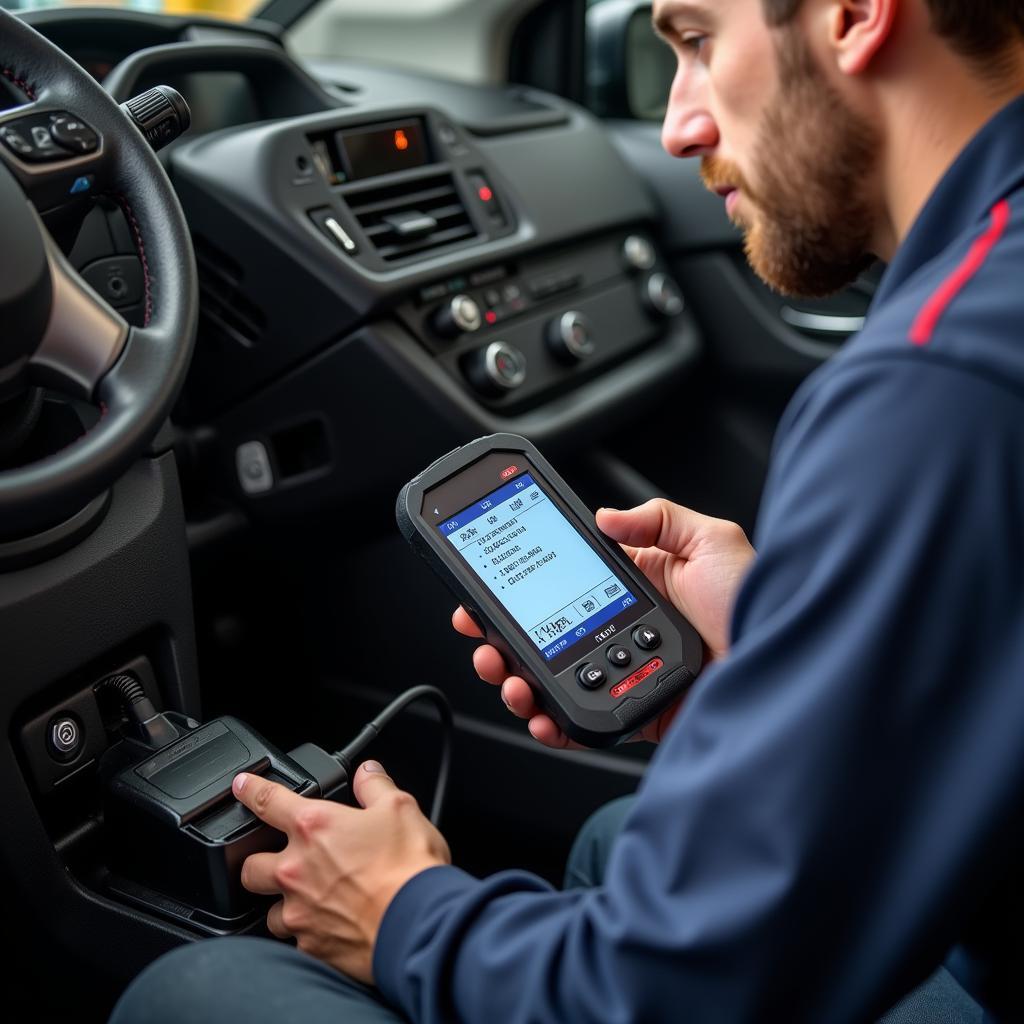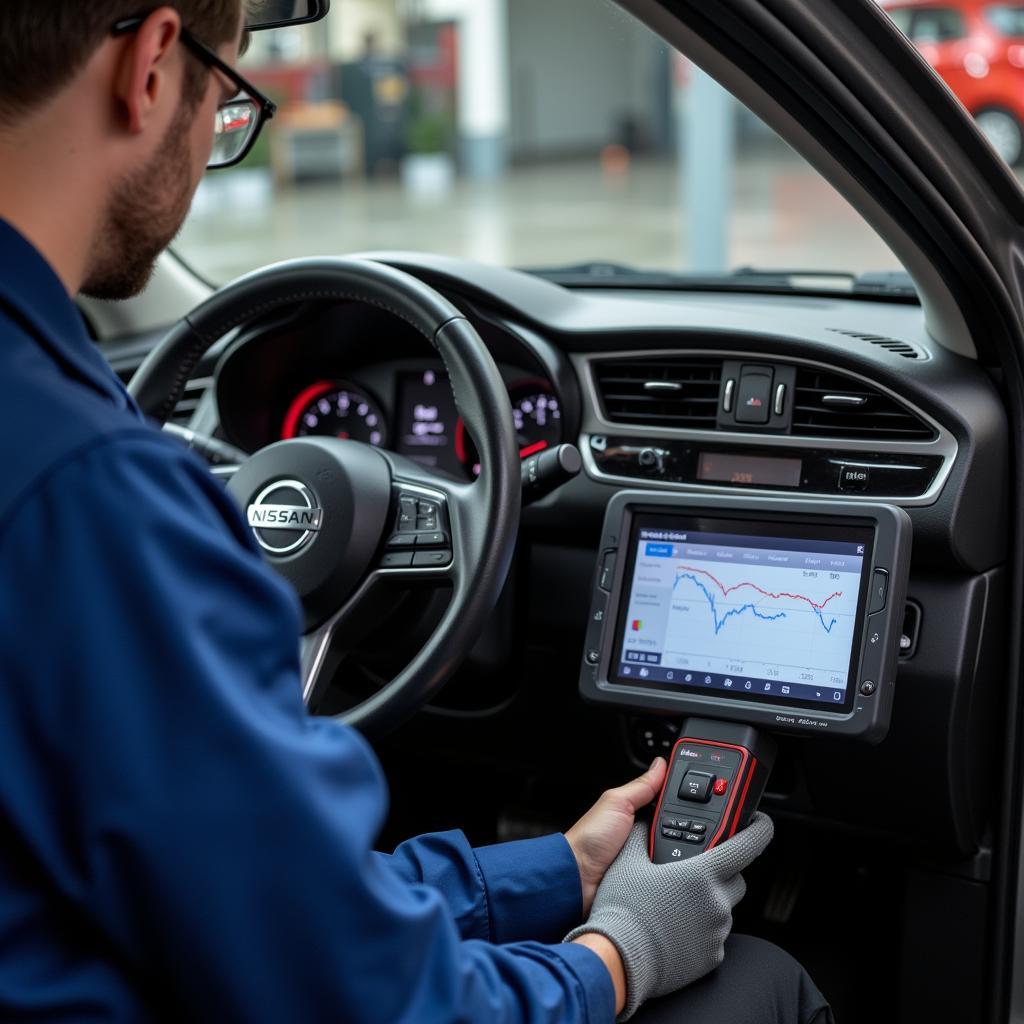The question of whether diagnostic tools should be verified by the FDA is a critical one for automotive technicians and car owners alike. Understanding the current regulatory landscape surrounding these tools is crucial for ensuring accurate diagnoses and effective repairs. This affects everything from a simple check engine light to complex electronic control unit (ECU) issues.
Understanding the Current Regulations for Automotive Diagnostic Tools
Currently, the FDA doesn’t directly regulate most automotive diagnostic tools in the same way they regulate medical devices. This doesn’t mean, however, that these tools are completely unregulated. There are other standards and certifications that manufacturers often adhere to, ensuring a level of quality and reliability. The confusion often arises because some diagnostic tools used in medical settings are FDA-regulated. This distinction is important to grasp. A tool used to diagnose a faulty sensor in your car is different from a device used to diagnose a medical condition.
Why Isn’t FDA Verification Required for Most Automotive Diagnostic Tools?
The primary reason the FDA doesn’t regulate most automotive diagnostic tools is that they are generally not considered to pose a direct risk to human health. While a misdiagnosis could lead to further vehicle problems and potentially unsafe driving conditions, this is viewed differently from a misdiagnosis that could directly impact a person’s health. This distinction is key to understanding the current regulatory framework.
The Importance of Accuracy and Reliability in Automotive Diagnostics
Even without direct FDA oversight, accuracy and reliability are paramount for automotive diagnostic tools. A faulty diagnosis can lead to unnecessary repairs, wasted time, and persistent vehicle issues. Imagine replacing a perfectly good oxygen sensor based on a bad reading from a subpar diagnostic tool. Not only is this a waste of money, but it could also mask the actual problem, leading to more significant issues down the line.
How to Choose Reliable Diagnostic Tools
So, how can you ensure you’re using a reliable diagnostic tool? Look for tools from reputable manufacturers known for quality and accuracy. Read reviews from other technicians and car owners. Consider the tool’s features and capabilities, and ensure it’s compatible with the makes and models of vehicles you work with.
“Choosing the right diagnostic tool can save you countless hours and dollars in the long run,” says Johnathan Davis, Senior Automotive Engineer at AutoTech Solutions. “Invest in quality and reliability, and you’ll be rewarded with accurate diagnoses and efficient repairs.”
The Future of Automotive Diagnostic Regulation
While current regulations don’t mandate FDA verification for most automotive diagnostic tools, the landscape could change in the future. As vehicles become increasingly complex and reliant on sophisticated electronic systems, the potential impact of misdiagnosis could become more significant. This could lead to calls for greater regulatory oversight.
Staying Informed About Changes in the Industry
It’s essential for both technicians and car owners to stay informed about any potential changes in the regulation of automotive diagnostic tools. This will ensure they are always using equipment that meets the latest standards and provides accurate, reliable results.
“The automotive industry is constantly evolving,” explains Dr. Amelia Rodriguez, Lead Researcher at Vehicle Diagnostics Inc. “Staying updated on the latest technologies and regulations is crucial for anyone working with or owning modern vehicles.”
Conclusion
While FDA verification is not currently required for most automotive diagnostic tools, accuracy and reliability are still essential. By choosing reputable tools and staying informed about industry changes, you can ensure efficient and effective vehicle repairs. Should you have any further questions or need assistance with your automotive diagnostic needs, please contact us at ScanToolUS. Our phone number is +1 (641) 206-8880, and our office is located at 1615 S Laramie Ave, Cicero, IL 60804, USA. We’re always here to help.
FAQ
-
Do I need an FDA-verified diagnostic tool for my car? No, most automotive diagnostic tools are not currently regulated by the FDA.
-
How can I choose a reliable diagnostic tool? Look for reputable manufacturers, read reviews, and consider the tool’s features and compatibility.
-
Could FDA regulation of automotive diagnostic tools change in the future? It’s possible, especially as vehicle technology becomes increasingly complex.
-
What should I do if I suspect my diagnostic tool is faulty? Contact the manufacturer or a qualified technician for assistance.
-
Where can I get more information about automotive diagnostic tools? Contact ScanToolUS for expert advice and support.
-
What are the consequences of using an inaccurate diagnostic tool? Inaccurate diagnoses can lead to unnecessary repairs, wasted time, and potentially more serious vehicle problems.
-
Are there any certifications I should look for when purchasing a diagnostic tool? Yes, look for certifications from reputable organizations that demonstrate the tool’s quality and accuracy.


